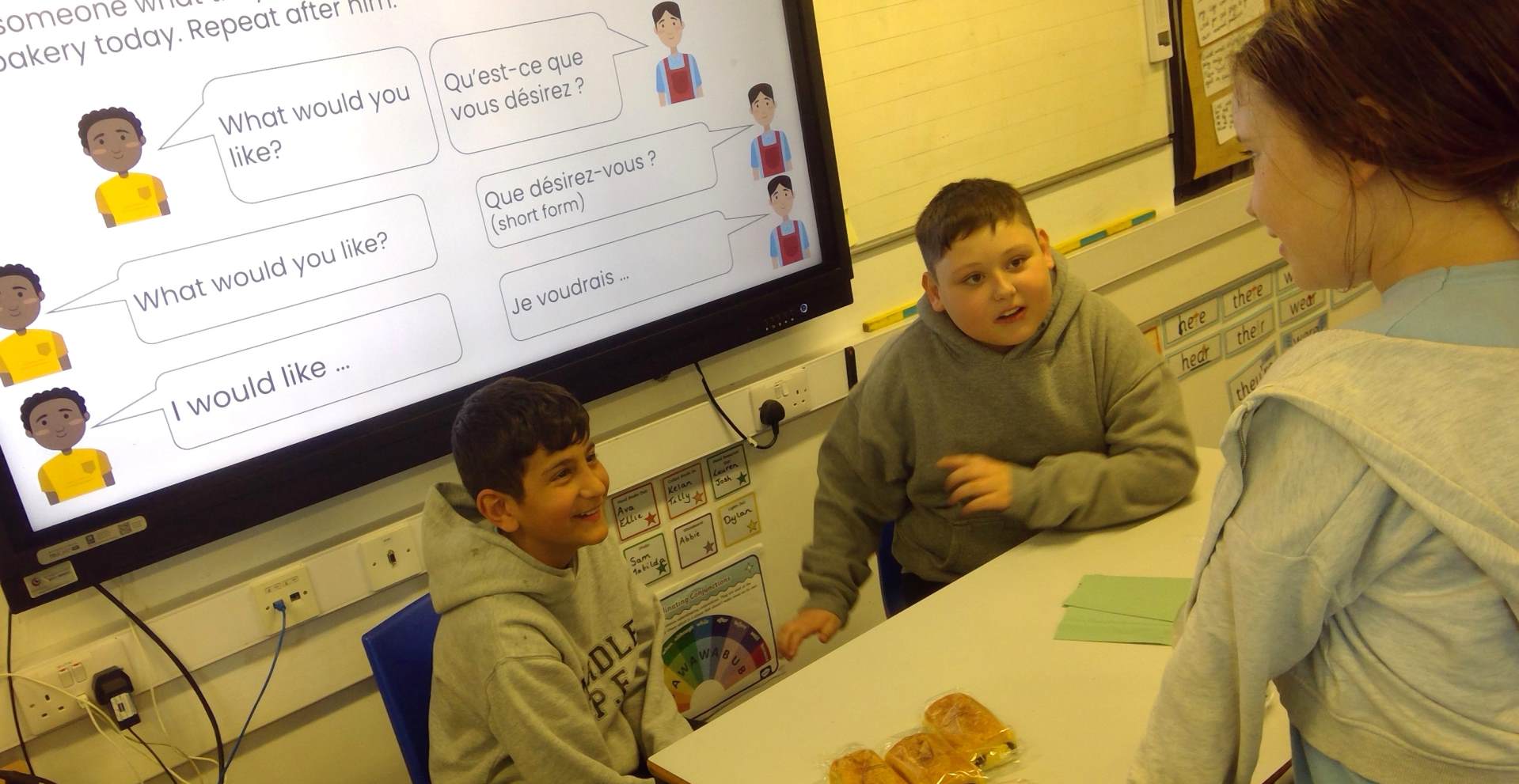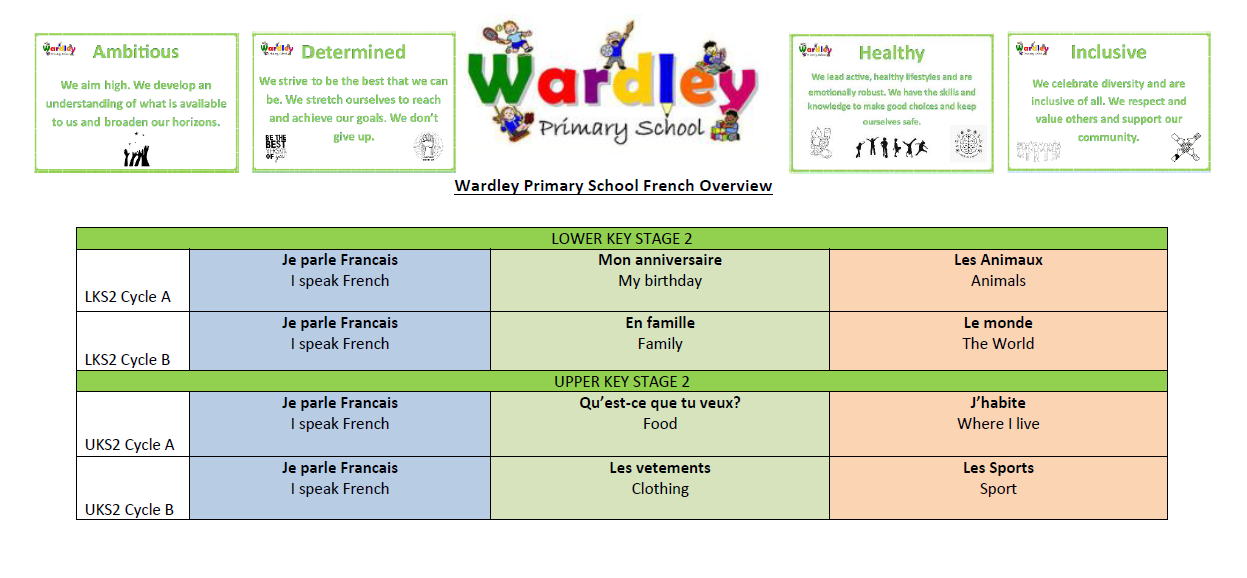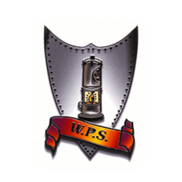
French
At Wardley Primary School, we value the benefit of foreign languages and it’s our aim to provide the opportunity for children to learn French in a stimulating and engaging way. French is delivered through a variety of games, music and speaking and listening exercises, ensuring that lessons are memorable and enjoyable. By immersing pupils in both the language and culture of France, we intend to inspire our children to engage fully in learning.
Each term, our Key Stage 2 children will learn new skills from a variety of French topics. This will equip them with the confidence and knowledge to begin to read, write and converse in a foreign language. It is crucial we are able to foster a positive attitude toward languages from a young age. Therefore, we endeavour to encourage a love of French so that our pupils can become lifelong learners who will continue to improve their language skills as they grow up.

Click the links below to view the knowledge and skills taught within each unit.
| LKS2 Cycle A | Je Parle Francais Autumn 1 | Je Parle Francais Autumn 2 | Mon anniversaire Spring_2 |
|
| LKS2 Cycle B | Je Parle Francais Autumn 1 | Je Parle Francais Autumn 2 |
|
|
| UKS2 Cycle A | Je Parle Francais Autumn 1 | Je Parle Francais Autumn 2 |
|
|
| UKS2 Cycle B | Je Parle Francais Autumn 1 | Je Parle Francais Autumn 2 |
|
|
National Curriculum Aims
The national curriculum for languages aims to ensure that all pupils:
- understand and respond to spoken and written language from a variety of authentic sources
- speak with increasing confidence, fluency and spontaneity, finding ways of communicating what they want to say, including through discussion and asking questions, and continually improving the accuracy of their pronunciation and intonation
- can write at varying length, for different purposes and audiences, using the variety of grammatical structures that they have learnt
- discover and develop an appreciation of a range of writing in the language studied.
Key stage 2
Teaching may be of any modern or ancient foreign language and should focus on enabling pupils to make substantial progress in one language. The teaching should provide an appropriate balance of spoken and written language and should lay the foundations for further foreign language teaching at key stage 3. It should enable pupils to understand and communicate ideas, facts and feelings in speech and writing, focused on familiar and routine matters, using their knowledge of phonology, grammatical structures and vocabulary.
The focus of study in modern languages will be on practical communication. If an ancient language is chosen the focus will be to provide a linguistic foundation for reading comprehension and an appreciation of classical civilisation. Pupils studying ancient languages may take part in simple oral exchanges, while discussion of what they read will be conducted in English.
Pupils should be taught to:
- listen attentively to spoken language and show understanding by joining in and responding
- explore the patterns and sounds of language through songs and rhymes and link the spelling, sound and meaning of words
- engage in conversations; ask and answer questions; express opinions and respond to those of others; seek clarification and help*
- speak in sentences, using familiar vocabulary, phrases and basic language structures
- develop accurate pronunciation and intonation so that others understand when they are reading aloud or using familiar words and phrases*
- present ideas and information orally to a range of audiences*
- read carefully and show understanding of words, phrases and simple writing
- appreciate stories, songs, poems and rhymes in the language
- broaden their vocabulary and develop their ability to understand new words that are introduced into familiar written material, including through using a dictionary
- write phrases from memory, and adapt these to create new sentences, to express ideas clearly
- describe people, places, things and actions orally and in writing


